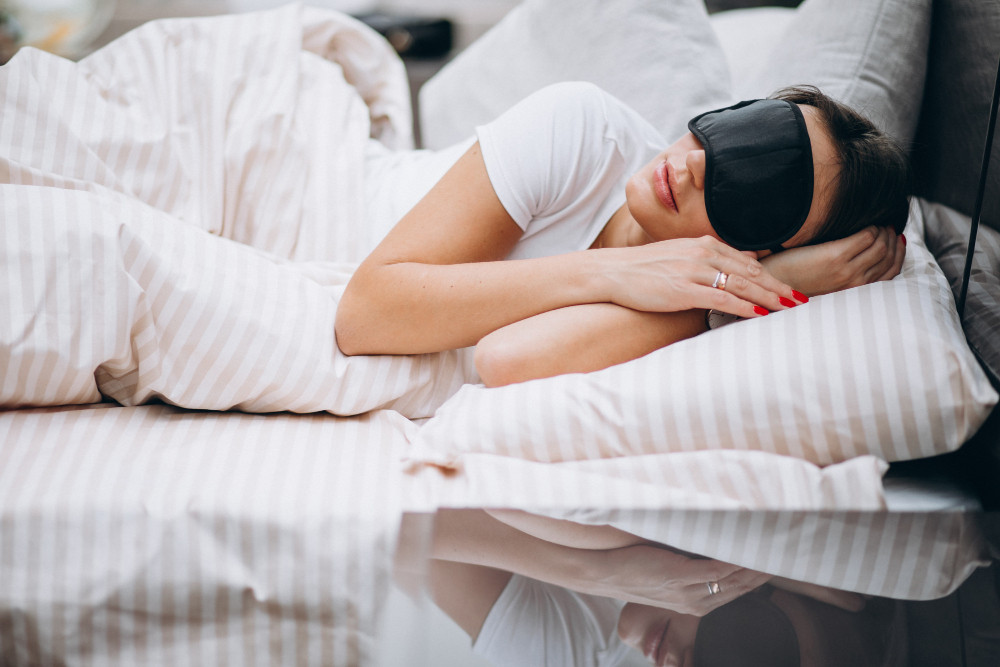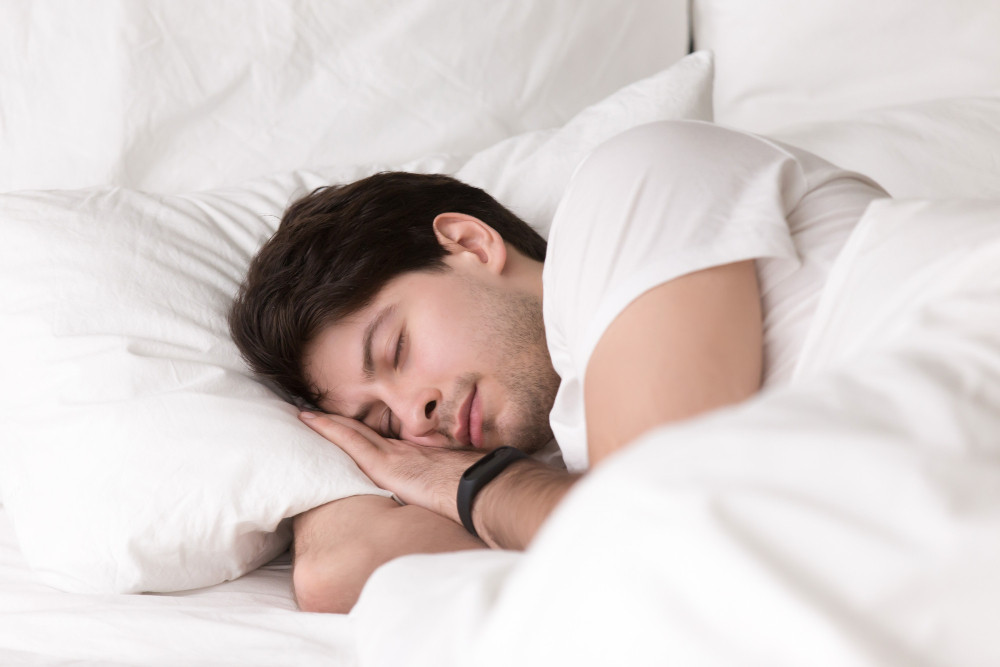Sering merasa mengantuk meskipun sudah tidur yang cukup bisa mengganggu aktivitas sehari-hari. Anda mungkin merasa kurang produktif, kurang bersemangat, dan mudah lelah, yang akhirnya dapat memengaruhi pekerjaan, sekolah, atau kehidupan sosial.
Kelelahan dan rasa mengantuk juga dapat menurunkan refleks dan kewaspadaan, sehingga meningkatkan risiko kecelakaan, terutama saat mengemudi atau menggunakan mesin. Ketahui berbagai penyebab sering mengantuk meskipun sudah tidur cukup, agar Anda dapat memperbaiki kualitas tidur dan kembali merasa lebih energik.
Penyebab Sering Mengantuk Padahal Sudah Tidur Cukup
Rasa kantuk yang berlebihan meskipun sudah tidur cukup merupakan masalah umum yang dialami banyak orang. Hal ini bisa disebabkan oleh berbagai faktor, mulai dari masalah ringan hingga kondisi yang lebih serius yang memerlukan penanganan. Berikut beberapa penyebab sering mengantuk meski sudah tidur cukup:
Kualitas tidur yang buruk
Tidur dalam waktu yang lama tidak selalu menjamin tubuh mendapatkan istirahat yang berkualitas. Kualitas tidur yang buruk sering kali berkaitan dengan gangguan tidur REM dan sleep apnea, di mana pernapasan berhenti sementara selama tidur.
Untuk mendapatkan tidur yang berkualitas, penting untuk merilekskan tubuh dan memastikan lingkungan tidur yang nyaman, gelap, dan tenang. Jika sleep apnea menjadi penyebab gangguan tidur Anda, sebaiknya konsultasikan dengan dokter untuk mendapatkan pengobatan yang tepat.
Gaya hidup tidak sehat
Kebiasaan tidak sehat sehari-hari bisa memengaruhi rasa kantuk meskipun Anda sudah tidur cukup. Beberapa faktor yang dapat berkontribusi antara lain kekurangan zat besi, kurangnya aktivitas fisik, atau konsumsi minuman berkafein, terutama menjelang jam tidur.
Baca Juga: Tips Tidur Nyenyak saat Sedang Batuk Pilek
Stres dan masalah mental
Stres, kecemasan, dan depresi dapat membuat tubuh merasa lelah sepanjang hari, meskipun sudah tidur cukup. Pikiran yang terus-menerus aktif dapat menguras energi, sehingga tubuh merasa kelelahan.
Untuk mengatasi hal ini, pertimbangkan untuk melakukan kegiatan relaksasi, seperti meditasi atau pernapasan dalam. Jika stres atau kecemasan berlanjut, konsultasikan dengan psikolog atau dokter untuk mendapatkan penanganan yang efektif dalam mengelola kondisi ini.
Gangguan kesehatan
Rasa kantuk berlebihan walaupun sudah mendapatkan tidur cukup bisa menjadi gejala masalah kesehatan tertentu, seperti anemia (kekurangan darah), diabetes, hipotiroidisme, atau narkolepsi.
Segera konsultasikan dengan dokter apabila Anda mengalami gejala seperti kelelahan ekstrem, perubahan berat badan yang drastis, atau sulit berkonsentrasi.
Baca Juga: Berapa Hari Tubuh Bisa Bertahan Tidak Tidur?
Jam biologis yang terganggu
Jam biologis, atau ritme sirkadian, adalah siklus alami tubuh yang mengatur pola tidur dan bangun dalam 24 jam. Siklus ini dipengaruhi oleh berbagai faktor, seperti cahaya matahari, zona waktu, kebiasaan tidur, dan pekerjaan.
Gangguan pada jam biologis dapat menyebabkan kualitas tidur yang buruk, penurunan kewaspadaan dan konsentrasi, gangguan mood, serta meningkatkan risiko penyakit kronis jika tidak diatasi.
Jika jam biologis Anda terganggu, penting untuk menetapkan rutinitas tidur yang konsisten. Selain itu, batasi paparan cahaya biru dari perangkat elektronik, hindari stimulasi berlebihan sebelum tidur, dan pastikan lingkungan tidur Anda nyaman, serta dapatkan cahaya matahari di pagi hari.
Jika Anda mengalami masalah tidur atau mengalami rasa kantuk terus-menerus dan mengganggu aktivitas sehari-hari, segera konsultasikan ke dokter. Anda juga bisa memanfaatkan layanan konsultasi kesehatan pada aplikasi Ai Care dengan mengunduhnya melalui App Store atau Play Store.
Mau tahu informasi seputar penyakit lainya? Cek di sini, yah!
- dr Nadia Opmalina
Cleveland Clinic (2023). Why Am I Still Tired After a Good Night’s Sleep?. Available from: https://health.clevelandclinic.org/why-you-wake-up-tired-after-8-hours-of-sleep
Jay Summer (2024). 8 Health Benefits of Sleep. Available from: https://www.sleepfoundation.org/how-sleep-works/benefits-of-sleep
Cleveland Clinic (2023). Sleep Disorders. Available from: https://my.clevelandclinic.org/health/diseases/11429-sleep-disorders
Cleveland Clinic (2022). Sleep Apnea. Available from: https://my.clevelandclinic.org/health/diseases/8718-sleep-apnea
John Hopkins Medicine. 4 Signs You Might Have Sleep Apnea. Available from: https://www.hopkinsmedicine.org/health/wellness-and-prevention/4-signs-you-might-have-sleep-apnea
Lucy Bryan (2024). Circadian Rhythm. Available from: https://www.sleepfoundation.org/circadian-rhythm












